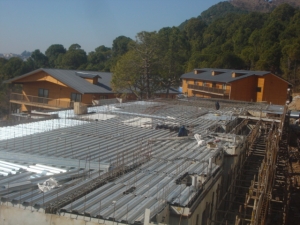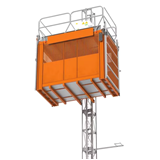In the 2011-12 Budget, the Federal Government announced certain businesses will be required to report details of payments made to contractors in the building and construction industry.
In a consultation paper released May 2011, it stated: "The aim of the reporting regime is to improve compliance with taxation obligations of contractors in the [building and construction industry] by providing the ATO with sufficient information to allow data matching for review and targeted audits."
These changes come about as non-compliance from contractors has been highlighted a real issue for the ATO, which has stated that "sham" contracting, where an employee is wrongly classified as a contractor to save on employee entitlements, is a real problem in the building and construction industry.
"We don’t agree with that kind of broadbrush allegation," David Humphrey, senior executive director – business, compliance and contracting at the Housing Industry Association (HIA), said.
"There is a historical evolution in the use of contractors in housing and it’s evolved that way for a variety of reasons, mainly because it just makes sense.
"To the extent that there’s sham contracting, we don’t think it’s anymore prevalent in construction than in other industries. In fact, some of the more recent cases where the Fair Work ombudsman have prosecuted haven’t been for construction, they’ve been for other industries, for instance, call centres."
Humphrey said many building industry professionals are concerned the measures are a broader attack on the use of contractors in the industry.
"We don’t really consider the imposition of the further red tape and regulations are good for business," he said.
"It was really developed without industry consultation and it was hit on us via a one-line statement in the budget papers."
Ray Pavri, managing director at Sustainergy, a staffing business for electrical engineers, said although the regulation does not directly affect his business, he believes the new regulations are good for the industry and will help to stop tax evaders.
If his business were subject to the regulations, he said payments made to electrical contractors are already recorded in the company’s system: "so conveying this to the ATO is no big deal," he told IndustrySearch.
However, the new regulations come on top of further compliance the building and construction industry already adheres to.
"The home building industry is one of the most regulated and taxed in the Australian economy," Humphrey said.
"Every time the government goes and introduces a new law or a new requirement or a new regulation … it makes it much more difficult to run a business and it means you’re spending more time worrying about paperwork and keeping in touch with the government than actually running the business."
Some see the regulations as unfair as they are being imposed on complying businesses in a bid to catch non-complying companies.
"The big and small HIA builder members have all indicated it will adversely affect them. A lot of it will depend on the existing reporting and accounting procedures and processes that they’ve got in place at the moment and how much they will have to change by virtue of the new laws and regulations," Humphrey said.
Estimates for how much it will cost to comply will vary from business to business, depending on what area of the building and construction industry the business is in and what their current accounting obligations are.
According to Pavri, it would take: "perhaps an additional four to five hours of work each month".
Humphrey said a builder currently using construction software may need to buy additional accounting software or upgrades.
"You also bear the internal admin costs. I wouldn’t be surprised if at the very minimum, for a small business, you‘re looking at least at $500 per year," Humphrey said.
"Given that we haven’t had enough time to properly consider the regulatory impact of these things, it will range. It may be less in some instances, and it may be much more, especially for those businesses that have to start disaggregating types of invoices between different types of suppliers."
The new regulations are currently being prepared by the Treasury and ATO and are likely to come into effect July 1, 2012.






-160x160-state_article-rel-cat.png)




-160x160-state_article-rel-cat.png)


-160x160-state_article-rel-cat.png)







